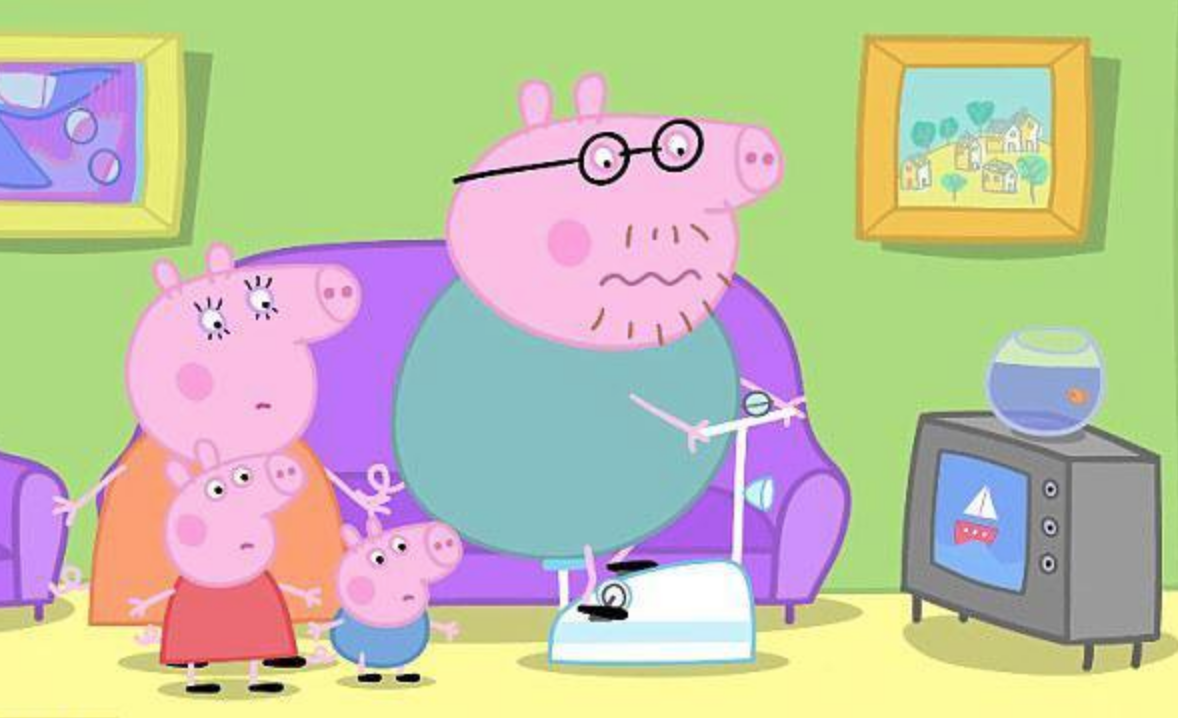
A few weeks ago, my 6-year-old was streaming Arthur on the family iPad while I cooked dinner. Arthur is a "safe show" in our house, so I was half-listening as I stood at the counter slicing vegetables. But in the midst of my meal prep, I heard something that caught me off-guard. "Do I look husky to you guys?" Arthur asked his friends. They asked him what that means. "It means I'm fat," he said. "I had to get new pants yesterday."
I listened for a few seconds longer, hoping Arthur was about to wade into progressive, body-positive waters. Instead, his friend said, "I know what you need to do. You just need to go on a diet!" That's when I told my daughter it was time to turn off the tablet and help set the table.
After the kids went to bed, I put the episode back on and was horrified by what I saw. In addition to negative fat and diet talk, the episode features a fantasy sequence in which a circus performer invites people to "step right up" and gaze at various horrors. One of them is Arthur — or as he's identified in this clip, the "Leaden Lump of Elwood City" — and the performer isn't shy about describing him as a freak of nature. "Large, lardy, a lifeless layabout lump of lumpiness," the man hollers, pointing to a gelatinous blob wearing Arthur's signature yellow sweater.
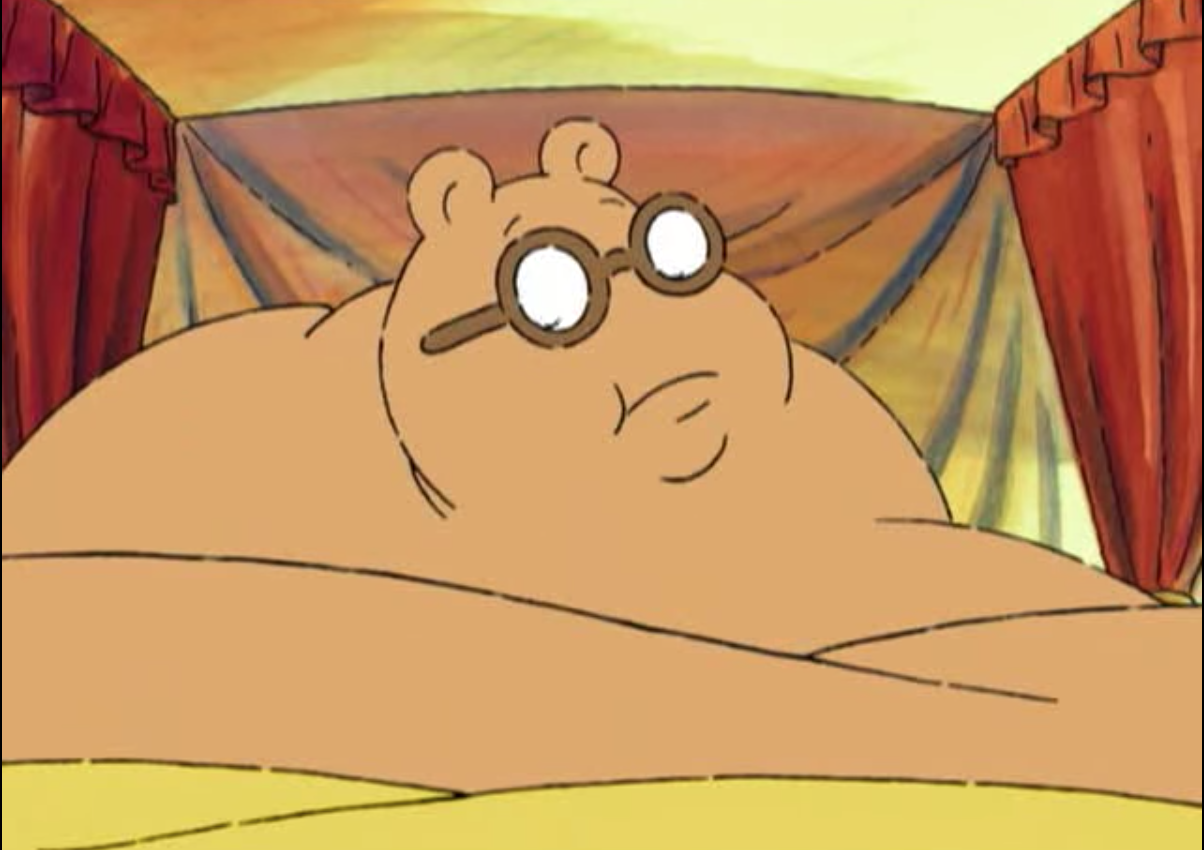
More from CafeMom: 15 Moms Who Epically Shut Down Body Shamers
The gist of the episode is that Arthur learns dieting is bad and eating nutritious food and exercising is the best way to stay healthy. But the way it arrives at that conclusion is through a plot thick with fat-shaming and fat-phobia. The episode originally aired in 2005, though it's available for 24/7 streaming on the PBS Kids app. I would love to blame its offensiveness on age and say kids' shows in 2018 offer much more body-positive representations of fat people, but I can't. In fact, fat-shaming in kids' shows and movies seems to be more prevalent than ever.
A 2017 study found that 84 percent of the top-grossing kids' movies released between 2012 and 2015 promote weight stigma. A separate 2014 study published in the International Journal of Eating Disorders showed that 58.3 percent of youth-directed TV shows and cartoons also contain some kind of negative comment or incident related to a character's weight or appearance. I believe it, because I see it and hear it on our television every single day.
Take, for example, Dreamworks' Trolls. I love the movie, and so do my kids. But I cringe when one of the main characters, King Gristle Jr., asks a girl out and then immediately goes home and hops on a treadmill because he's nervous about their date and wants to "lose 30 pounds in the next eight hours."
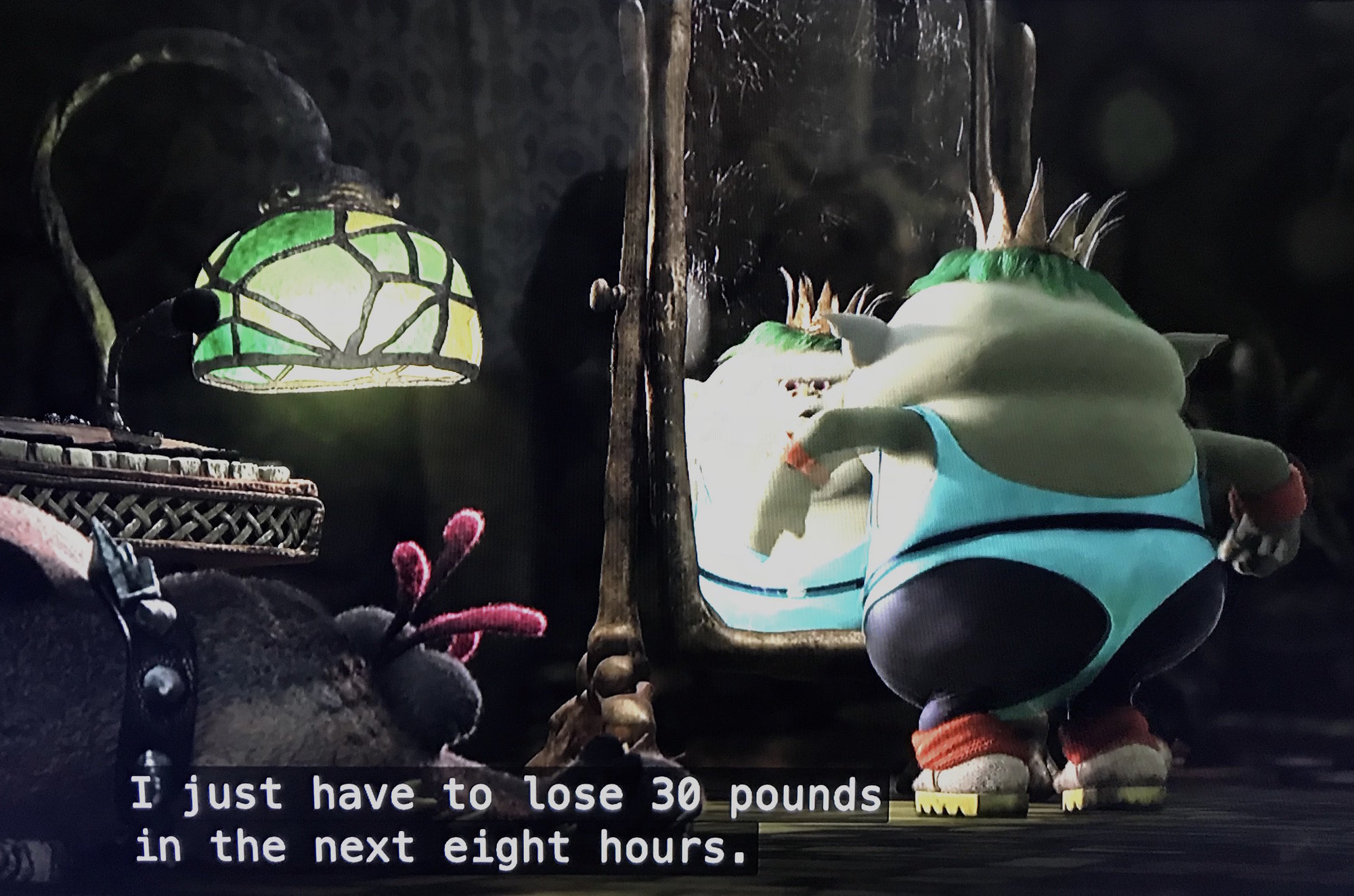
More from CafeMom: This Viral Video of a Baby Trying to Button Her 'Skinny' Jeans Has the Internet Divided
There's also Peppa Pig, a cartoon aimed at preschoolers, in which the running joke is that Daddy Pig is fat. In a 2017 op-ed for the Huffington Post, writer Emily McCombs outlines countless times Daddy Pig is shamed for his weight, including an episode in which Peppa makes the password for her tree house "daddy's big tummy" and then laughs at him when he can't fit inside.
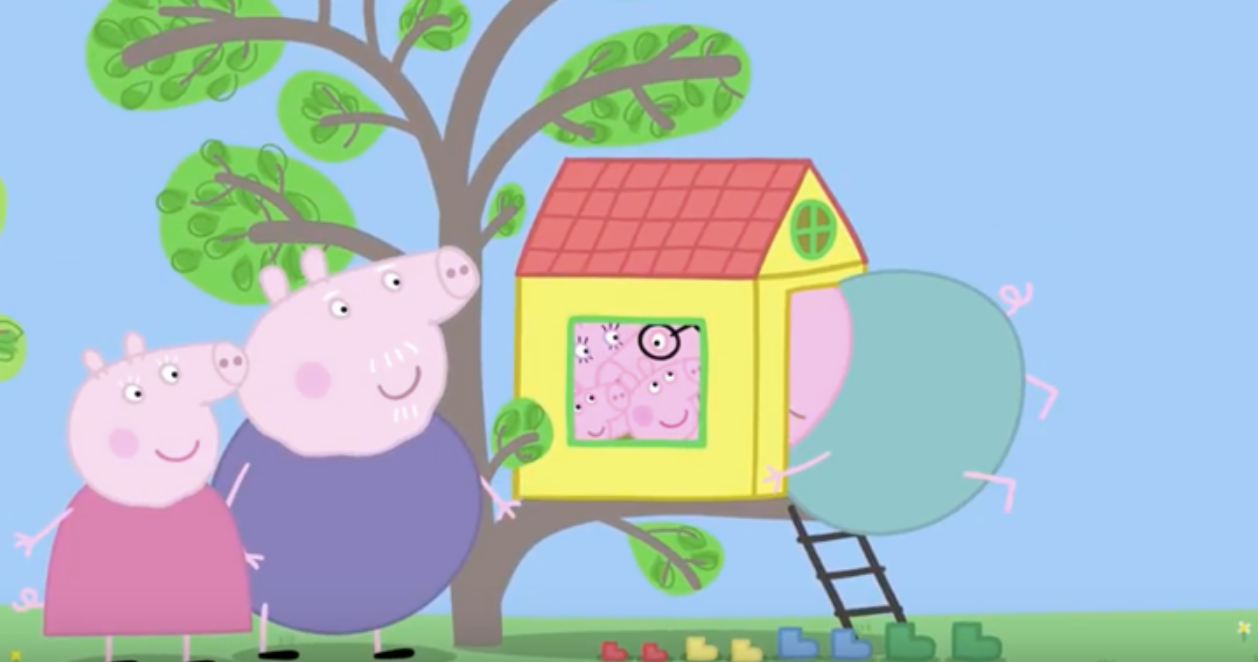
The 2016 hit Zootopia, a movie that emphasizes the problems with stereotyping and prejudice, features a fat cheetah police officer whose big moment of comedic glory is not realizing he has a donut lodged under his double chin. He's also shown eating in almost every scene he's in, because apparently the defining quality of a fat character in a kids' show is that he or she consumes food nonstop.
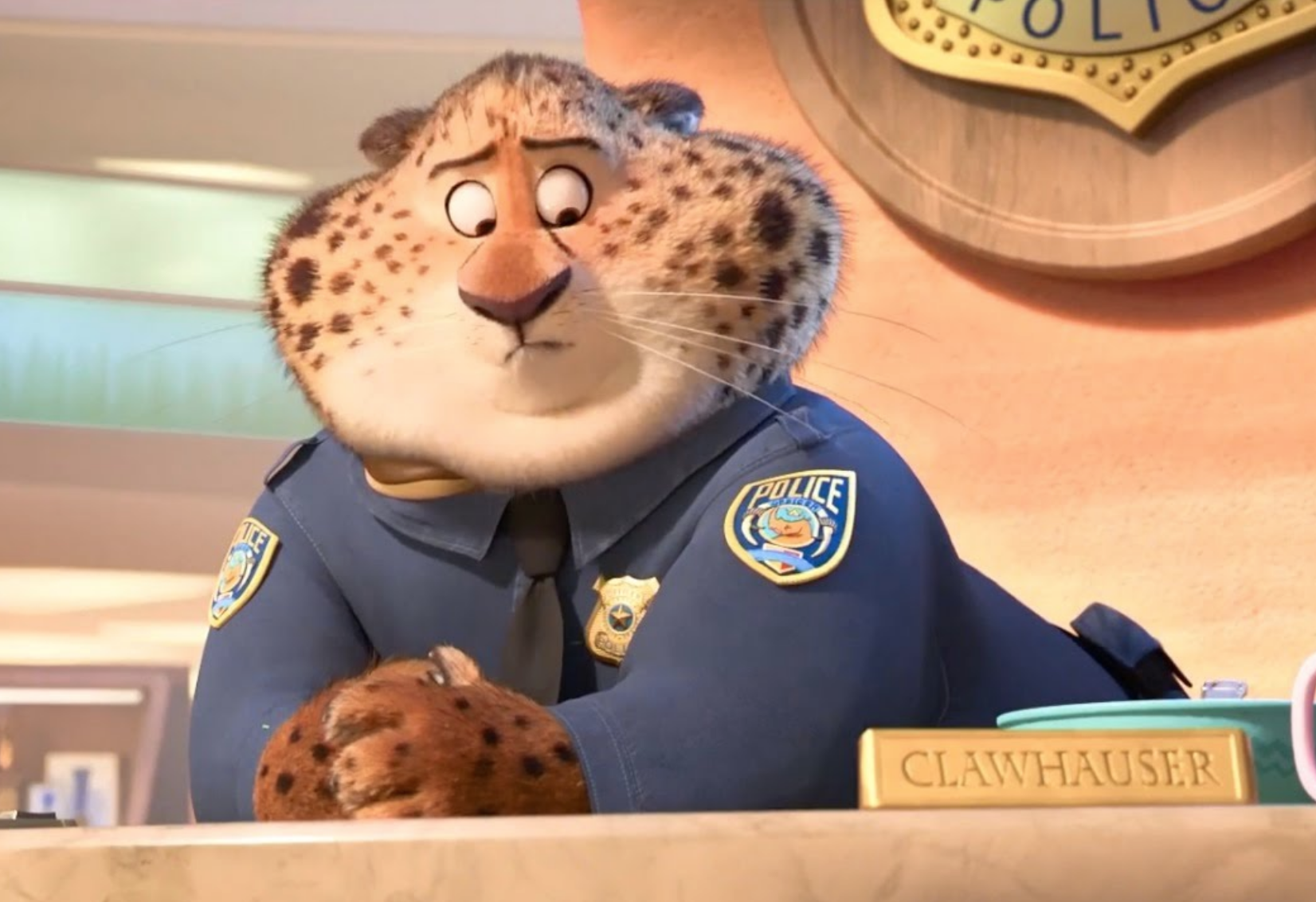
There was also the fat-phobic Snow White movie being promoted during the 2017 Cannes Film Festival, with posters that showed a thin Snow White next to a fat Snow White and asked, "What if Snow White was no longer beautiful…?"
2015's SpongeBob Movie: Sponge Out of Water includes a scene in which two fish go on a date, and in the background there's a lonely, fat fish whose chair breaks as he's gorging on a cheeseburger. And Kung Fu Panda, the latest installment of which was released in 2017, is an entire kids' movie franchise based around the fact that a panda named Po gets to be a ninja warrior even though he's *gasp* fat.
People offer up a lot of excuses when you bring up fat-shaming in kids' media. They say obesity is a health crisis, and they're just trying to teach kids to be healthy. But studies show that fat-shaming actually has the opposite effect — people who are fat-shamed tend to gain more weight. Some folks also point out that most of these representations are "just jokes" and parents shouldn't be so uptight. But these "jokes" are cruelly shaping the way our kids see other people's bodies, and they're changing the way kids see themselves.
More from CafeMom: 15 Insanely Offensive Things People Have Actually Said to Plus-Size Pregnant Women
A 2013 study by Leads University found that kids start demonstrating prejudice against fat people at just 4 years old. After reading stories with different versions of a character named Alfie — a fat Alfie, a thin Alfie, and an Alfie in a wheelchair — and then being asked to compare the characters on certain attributes, kids said the fat version of Alfie would be less likely than the the others to do well in school, be happy with his appearance, or have a lot of friends, based solely on how he looked. And these biases don't just apply to fictional characters.
A 2017 study found that kids who are overweight are less liked by their peers and more likely to be bullied and excluded, starting as early as first grade. Kids are also increasingly afraid of becoming fat themselves. As many as 34 percent of 5-year-old girls have tried to restrict their food intake in order to lose weight, and one in four kids of both sexes have been on a diet by age 7. While the way we talk about bodies at home plays a major role in how kids view weight and body image, researchers actually cite "media exposure and appearance conversations" as the strongest predictors of diet-related behavior.
As a parent, I work hard to model body positivity. I don't speak negatively about myself or others, I don't shame my kids for the food they eat, I preach that all bodies are good bodies, and I make a concerted effort to serve healthy meals and to get my kids involved in physical activities that they enjoy doing and that make them feel good about themselves. But it's impossible to override the negative messages they're slammed with every time I hand them a screen.
I shouldn't have to worry that by watching something on PBS or seeing a G-rated movie, my kids are learning damaging lessons about fat bodies and which types of bodies are worthy of love and respect. A main goal of kids' media has always been teaching children lessons about kindness, thoughtfulness, and tolerance. It's time for the creators of these shows and movies to stop giving kindness a size limit.




